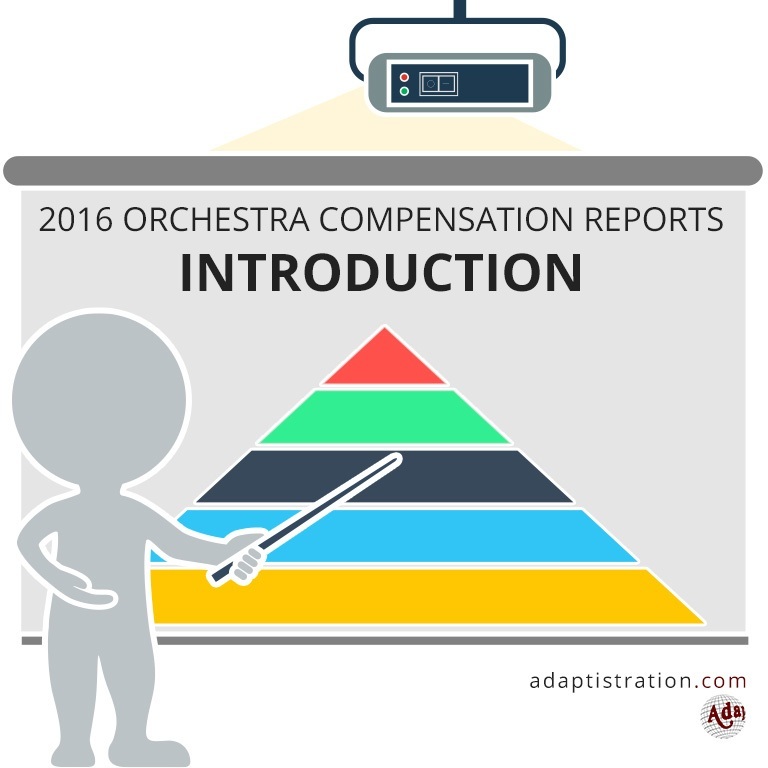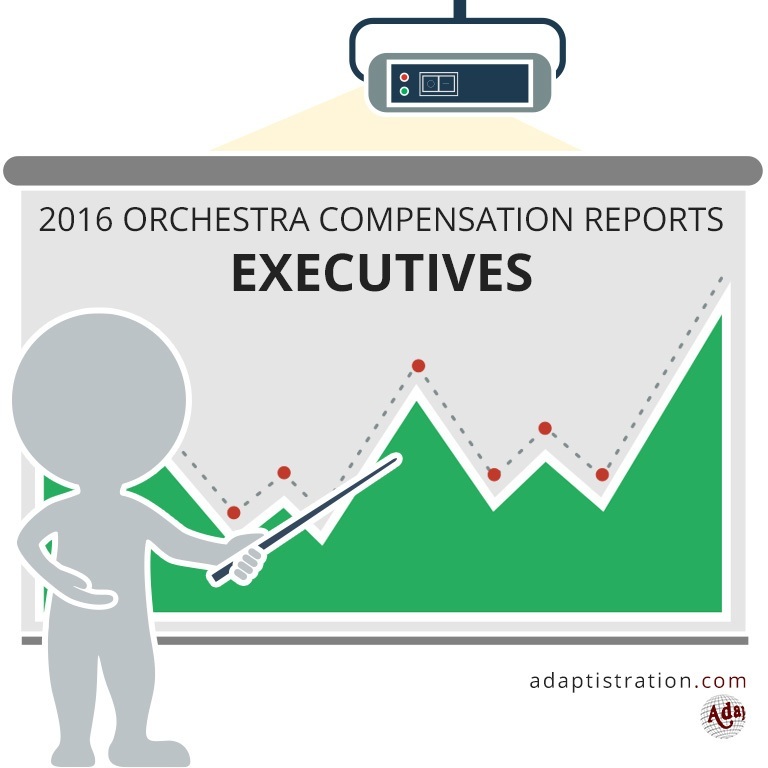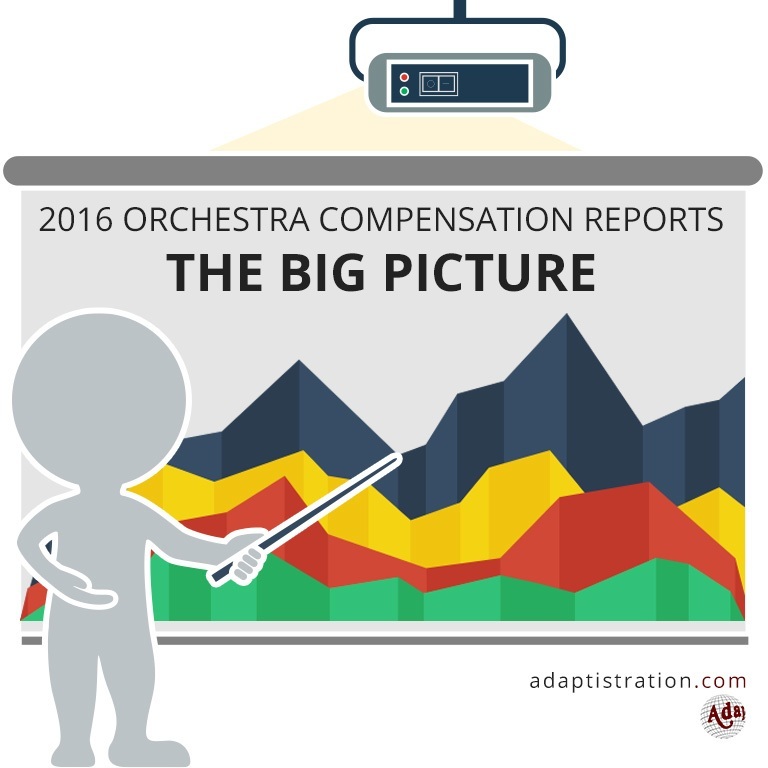Although the average percent increase for music director compensation in the 2005/06 season was approximately half of figure from the previous season, the Top 10 earners experienced a slightly larger drop than their peers. Regardless, ICSOM music directors remain firmly fixed atop of the orchestral compensation pyramid…
WHERE THE NUMBERS COME FROM
In order to provide information that is as accurate as possible, data from the 2005/06 season is gathered from the following sources:
- Music Director Compensation figures were obtained from their respective orchestra’s IRS Form 990 for the 2005/06 concert season.
- Total Expenditures were also obtained from each respective orchestra’s IRS Form 990 for the 2005/06 concert season.
- Base Musician compensation figures were obtained from records collected by the American Federation of Musicians and IGSOBM (Seattle) for the 2005/06 concert season.
Adaptistration makes no claim to the accuracy of information from documents compiled or reported by external sources. If you have reason to believe any of the information is inaccurate or has changed since reported in any of the above sources and you can provide documentation to such effect, please feel free to submit a notice.
WHAT THE NUMBERS DON’T SHOW
It is important to remember that the numbers shown do not always convey a complete compensation picture. For example, a music director may have had a large increase in salary because they were leaving a position and per terms of their contract they may have received a sizeable severance or deferred compensation package. As such, the cumulative compensation may artificially inflate annual earnings. Furthermore, these figures may not reflect bonuses or other incentive payments, therefore underreporting what conductors may actually earn. Also missing from the figures are expense accounts and other perks, as such, the cumulative compensation for music directors may or may not be more than what is listed. Additionally, the documents used to gather data do not indicate how much of the season an individual received a salary. As such, excessive adjustments in the percentage change from the previous
season’s compensation may be artificially adjusted.
Although the music director compensation figures include the combined amounts reported as what the IRS classifies as “compensation” and “contributions to employee benefit plans & deferred
compensation,” each orchestra does not always report figures for the latter category. Additionally, some organizations list music director compensation among the five highest paid private contractors as opposed to employee compensation. In these instances, no information about benefits or deferred compensation is available.
The “Base Musician” compensation figures do not include any additional payments including but not limited to outreach services and minimum overscale and/or seniority payments, all of which are more common for ICSOM musicians as opposed to their ROPA peers. Finally, these figures do not include any of the opera, ballet, or festival orchestras which are members of ICSOM or IGSOBM.

TOP 10 EARNERS AND QUICK FACTS
More so than executive directors, music directors are at the top of the compensation pyramid. However, unlike their administrative counterparts most conductors earn much more throughout the course of a season. Many rarely conduct more than 12 weeks at their respective ensemble; as such, they maintain regular guest conducting schedules and several even serve as the primary conductor in more than one ensemble. As a result, these conductors can easily double, triple, or even quadruple the annual compensation figures listed in this report.
2005/06 Quick Facts:
- Compared to figures from the previous season, the average and cumulative compensation for the Top 10 highest paid music directors decreased by 6.11 percent.
- Only one music director earned over $2 million for the 05/06 season.
- For the first time in the past two seasons, the conductors from St. Louis and New Jersey made the
Top 10 highest compensated music directors, displacing their colleagues from Dallas and Cincinnati. - For the first time in the past seven seasons, average music director compensation exceeded $600,000.


